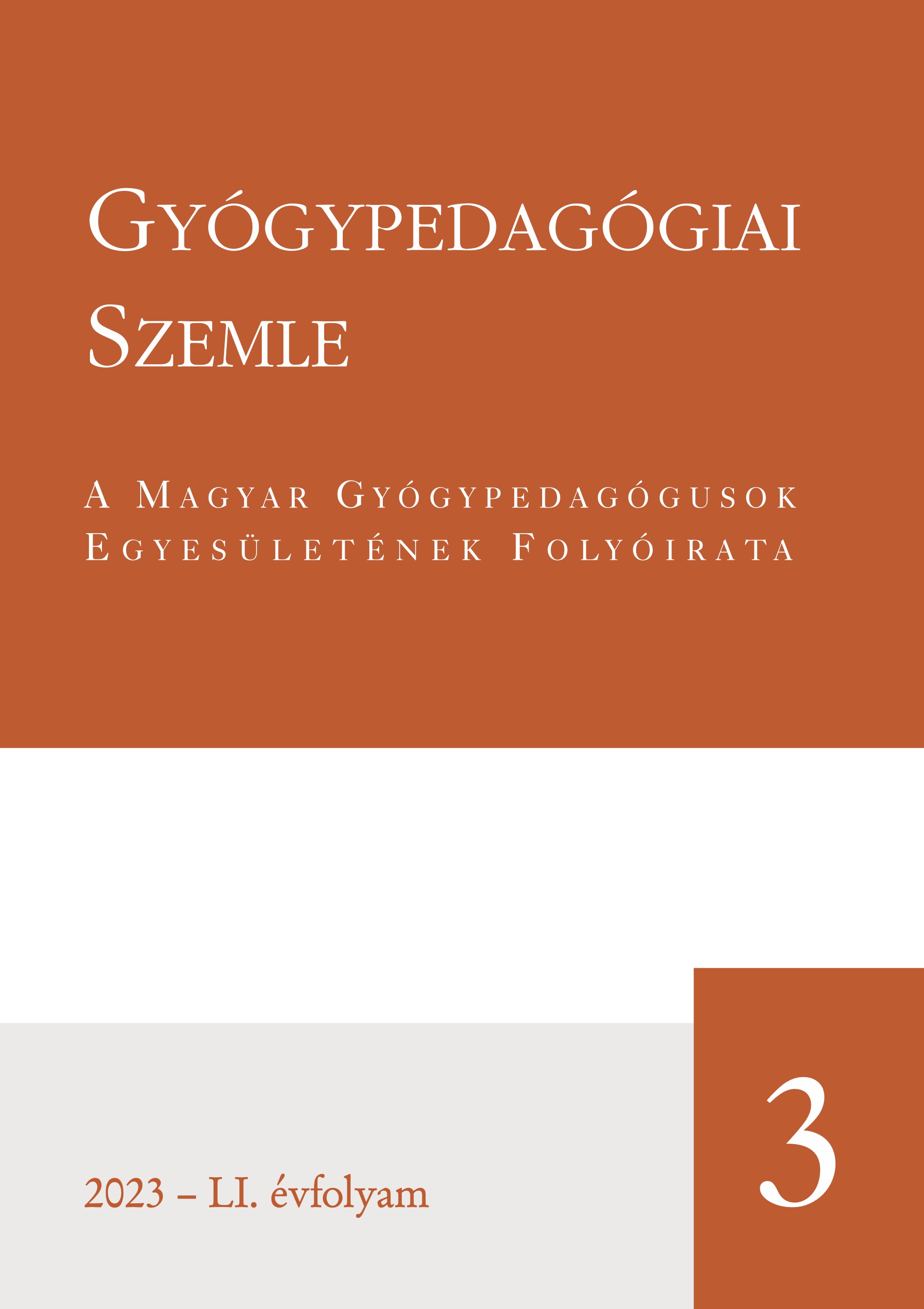The professionalisation of special needs education for inclusive education
DOI:
https://doi.org/10.52092/gyosze.2023.3.1Keywords:
inclusion, professionalisation, special needs teacher roles and competencesAbstract
Background and objectives: The professionalisation of pedagogical work and the quality of this work have been at the centre of professional and educational policy debates in recent decades. Within the teaching profession, special needs teachers are a special group, as they have to meet social and organisational expectations that differ from those of teachers in general, and they have specific expertise and role skills. Professionals of inclusive education are also in a special position within this group. The aim of our study is to present, through a multilevel analysis of stories about inclusive education, the roles of the special educator in practice and the implicit and explicit professional knowledge associated with these roles.
Method: Our study was based on narrative interviews (N=100). We aimed to cover both the concrete- and the meaning-making levels of the analysis, using different exploratory/processing methods. MAXQDA text analysis software was used for content analysis of the stories. Results: The results of the study show that the activities of special needs teachers are quite diversified (counselling, consultation, coordination, etc.) and often involve several actors in the educational process (child, parent, teacher) at the same time. The study confirmed
all the elements of the previously described role model of the special needs teacher, including the interrelationships between the roles. Conclusions: The results of the research can help to develop the professional competences of special needs teachers, to improve training
and to contribute to the quality of inclusive education of children and pupils with special educational needs. Keywords: inclusion, professionalisation, special needs teacher roles and competences

